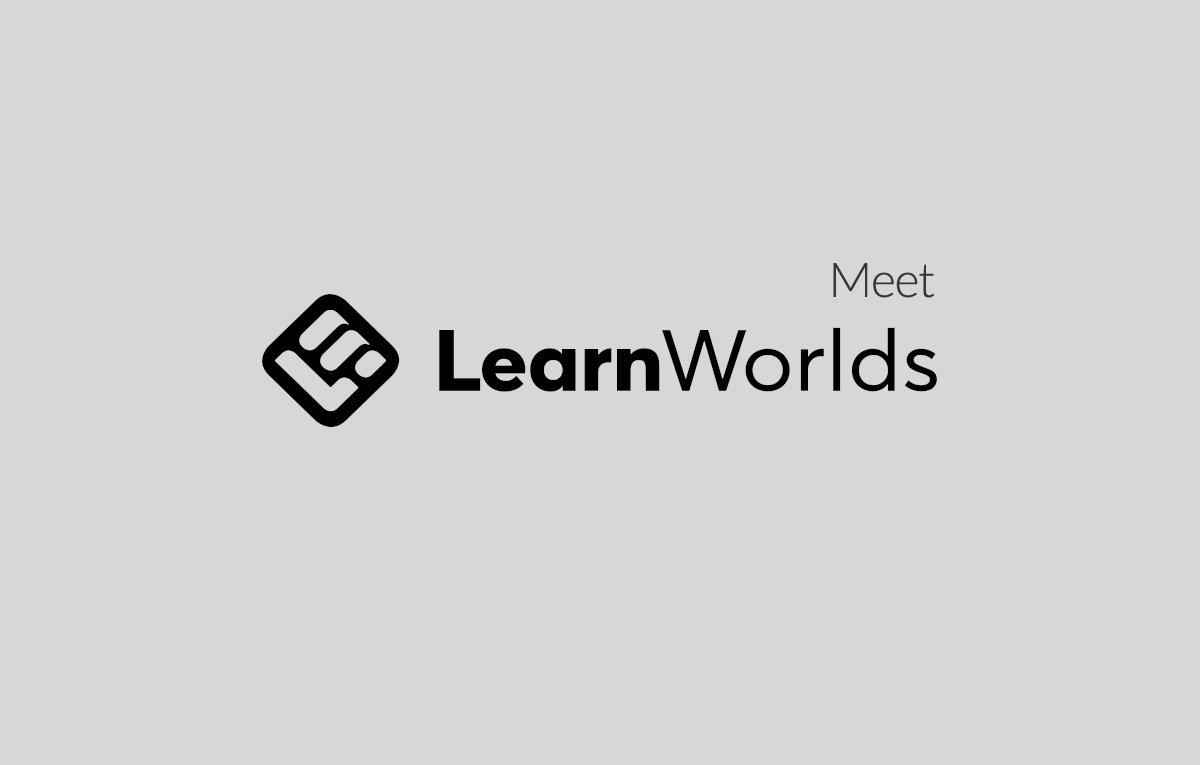LearnWorlds: a Scale-up Greece event
In our latest Scale-up Greece event, we had the honor of hosting the LearnWorlds team. We had a really insightful discussion with Panos Siozos, one of the founding members of this thriving edtech company.

LearnWorlds has recently managed to raise a huge funding in July. A total of $32M came their way from Insight Partners. But, that is only a small part of their story. Panos generously shared all the nitty gritty details of their journey so far, with us. That is, including valuable learnings on mistakes and findings that helped LearnWords grow and lead to their success, today.
We have prepared a series of three articles, chock-full of learnings worth sharing with our startup community. All of this, with one goal in mind; to empower our startup ecosystem in Greece.
Before we delve into the story of LearnWorlds — just in the way Panos kindly shared it with us — it is worth revising the story of Scale-up Greece. For those of you that are unfamiliar with the initiative, Dimitris Tsingos, co-founder of Starttech and initiator of Scale-up Greece, made an intro as to how things have changed in the Greek startup ecosystem, over the last few years. Let’s find out more about it.
Building startups, the wrong way and for the wrong reasons
Building startups used to be a trend for the wrong reasons over the last twenty years. And, building more and more startups was erroneously considered to be a sign of progress. Many of these startups were, in many cases, built overnight.
And not only that, there was also an obsession around fundraising. As a matter of fact, funding was somehow erroneously linked with success in entrepreneurship. Startups used to celebrate funding rounds they would raise, only to fail a few years later.
Another misconception around entrepreneurship was regarding the definition of innovation. As Dimitris professed: “New “innovative” ideas would spruce up and journalists in Greece, thirsty for “innovative” ideas, used to call me personally to ask for relevant input.” And, continued adding: “Personally, I’d draw a parallel between this phenomenon and acrobats in a circus that improvise in a risky way.”
All in all, there was a huge misconception around funding, innovation and entrepreneurship. Dimitris, himself, contributed to the initiation of productive discussions around startups, in Greece and in Europe.
A shift in mentality – Where did the idea of the scale-up initiative come from?
The idea of Scale-up Greece was born a few years later; when Dimitris met Daniel Isenberg, a Harvard Business professor, during an event organized by “Yes for Europe”. Professor Isenberg played a significant role in the Venture capital industry of Israel. According to professor Isenberg, examining the number of startups, alone, means nothing. That is to say, a large number of startups is not a sign of success in the economy of a country; what’s important is to focus on building companies that grow.
In an event organized by the same organization in Brussels, a few years later, Dimitris also met Panos Siozos — co-founder of LearnWorlds — whom we had the pleasure of hosting, at our latest Scale-up Greece event.
So, let’s pass the torch to him and let us learn all about the LearnWorlds journey.
The LearnWorlds journey: when a story is best told backwards
Panos started his narration backwards, explaining to us all about the LearnWorlds today. Then he mentioned how covid and market trends affected their business, to finally focus on their first steps and the challenges they faced. Let’s find out all about it.
LearnWorlds today
LearnWorlds is a digital tool that allows users to create, pack and distribute knowledge products. Knowledge packages can be online courses, but things evolve over time and knowledge packages can take more sophisticated forms.
LearnWorlds is the Spotify for online courses. It’s a white-label platform that allows you to create your online courses combining video, sound, e-books, quizzes, assessments, certificates or anything else. Their platform is domain-agnostic. Courses can be anything from yoga courses and entrepreneurship courses to Data Science and Data Analytics; just about anything. Trainers — regardless of their field of expertise — are able to turn their material into packages and sell them from their own websites. LearnWorlds also works as an LMS. That goes to say, students are also able to “consume” these knowledge packages.
They also provide their customers with a management toolset that helps them create marketing campaigns and sell their products. Their target market does not focus on schools and institutions in what we call “traditional education”. They focus mainly on private organizations and companies. In addition to that, they also target independent trainers, individuals or any person that is able to create teaching content for a specific customer audience.
But, why online courses?
The remit of online courses isn’t something new, according to Panos. There are many products of such relevance on the market; from Coursera to Pluralsight, and so on. Online courses are still “sexy”, as Panos mentioned. The needs are so diverse, from academic courses to bite-sized courses, lasting maximum 2-minutes or live lessons of any field. As Panos explained:
“Even this meetup [referring to the scale-up event itself], could turn into a course that would be shared to a business school”. Online courses are highly saleable products. And that became more intensive during the pandemic.
A scale-up that helps customers scale up their businesses
LearnWorlds’ customers are able to create a course once, and sell it a thousand times over, according to Panos.
“Many trainers stumbled on our platform during the pandemic. Some of them were forced to close their training studios, for example, and were looking for ways to keep their businesses alive. And that was an opportunity for LearnWorlds.”
They realized they could invest in this form of business. Although the number of hours one can teach is limited, online courses can help them get the longed-for passive income. In addition to this, they may also target a global audience 24/7. And that’s what’s great about SaaS products, regardless of the service you’re offering, be it software or any other type of service; even more so, when it comes to online courses and the passive income we’re enabling our customers to pursue.
Learning from their customers: how educational content helps a SaaS business
According to Panos, “education is great for marketing”. One of the lead magnets they use are the free online courses they offer to their own customers. Online courses serve as the most discrete and subtle form of marketing. You offer knowledge for free; you don’t sell. Actually, you’re selling, using your knowledge as a vehicle, in the form of an offering.
LearnWorlds’ DNA: making things a bit better day by day
As Panos admitted, this is actually their company motto:
“We try to become better, day by day. Solving one problem a day, improving our funnel a little, resolving a few tickets a day, releasing another support article, getting a new trial; small things that start making a difference. That’s how it works in the end. “
LearnWorlds’ business roadmap, so far
Having started back in 2011, they became corporate in 2014. Their headcount, today, is 85 people; and they now focus on hiring more than ever before. A great milestone for LearnWorlds was achieved during this summer, when they closed their funding round, receiving $32M from Inside Partners. It was, indeed, a great success story for the Greek edtech entrepreneurial ecosystem. They now have the resources to further work on their vision and grow their business further. But, how did it all start?
We’ll find all about their maiden voyage in our next article. Stay tuned!
